 For our 2017 Bachelor’s in Nursing ranking, we have selected regionally accredited colleges and universities with reputations for offering high quality undergraduate nursing education have ranked them using our weighted methodology that brings together the publicly available data including U.S. News scores, tuition rates (according to the Colleges’ websites), return on investment (according to Payscale.com), graduation rates, and cohort default rates (according to the National Center for Education Statistics) to produce an overall score of 1-100. We began with a pool of over 200 colleges and universities. The 50 top scoring colleges and universities that come out of this process are those that are named our Best Value Bachelor’s of Nursing Programs.
For our 2017 Bachelor’s in Nursing ranking, we have selected regionally accredited colleges and universities with reputations for offering high quality undergraduate nursing education have ranked them using our weighted methodology that brings together the publicly available data including U.S. News scores, tuition rates (according to the Colleges’ websites), return on investment (according to Payscale.com), graduation rates, and cohort default rates (according to the National Center for Education Statistics) to produce an overall score of 1-100. We began with a pool of over 200 colleges and universities. The 50 top scoring colleges and universities that come out of this process are those that are named our Best Value Bachelor’s of Nursing Programs.
Nursing is a diverse discipline that affords the opportunity for a challenging and rewarding career. Baccalaureate-prepared nurses are generalists who provide services for patients and their families in hospitals, clinics, businesses, homes, and a variety of other settings. Nursing involves activities related to health promotion and health restoration of individuals who are experiencing illness and/or disabilities throughout the lifespan. The Bachelor of Science in Nursing (BSN) is the entry level professional degree in nursing and provides the foundation for graduate study. The BSN can be earned from a variety of different academic backgrounds. Whether prospective students already possess a bachelor’s degree in a different discipline and are looking to make a career change to nursing, or are fresh out of high school and pursing their bachelor’s degree towards a career in nursing, the programs listed here include options for you to earn your BSN. Graduates of these programs will be eligible to take the national licensing examination (NCLEX-RN) to become registered professional nurses.
It should be noted that in building our ranking we take both in and out-of-state tuition into consideration. However, it is always the case that attending college in your state of residency will always be more affordable and ultimately provide a better return on investment than attending an out-of-state school. Where applicable, any program on this list offered through a public college or university that is in your state of residency should be considered among those at the top of the list.
#1. Brigham Young University
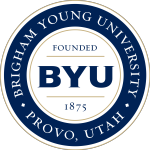
Brigham Young University is a private research university associated with the Mormon church (Church of Jesus Christ of Later Day Saints). BYU comprises three campuses in Idaho, Hawaii, and the flagship campus, in Provo, Utah. The university is known for its internationally experienced and academically minded student body and excellent dedication to teaching. BYU is particularly noted for its excellence in language education offering courses in some 50 different languages and with more than three-quarters of the student body being bilingual. Though students do not have to be members of the LDS Church, BYU is strongly oriented toward the LDS faith and requires all students to adhere to a strict “honor code” that directs student behavior in a matter consistent with the values and teachings of the Mormon church. BYU is ranked #66 in “National Universities” and #92 in “Best Nursing Schools” by U.S. News and World Report.
The College of Nursing at BYU develop professional nurses who promote health, care for the suffering, engage in the scholarship of the discipline, invite the spirit in to health and healing, and lead with faith and integrity. The College of Nursing offers a baccalaureate nursing program leading to a Bachelor of Science in Nursing to prepare general practitioners with the knowledge, skills, leadership abilities, values, and competencies commensurate with roles of professional nursing practice. Nursing education builds on the sciences, humanities, and religious studies to develop the strong theoretical and practical base necessary to understand and meet the health needs of people in various health care settings. The curriculum is designed for the full-time student. Students carry as many as 16 credits most semesters. The six semesters of nursing courses include up to 12 hours of clinical experience each week in addition to course work. Because of the rigors of this study plan, students should not expect to be employed more than 10-12 hours a week during their program. BYU’s outstanding tuition rates have it’s place at #1 on this ranking.
Accreditation: Brigham Young University is regionally accredited by the Northwest Commission on Colleges and Universities.
Tuition
LDS Students: $21,200
Non-LDS Students: $42,400
#2. University of Texas Medical Branch

The University of Texas Medical Branch is a member of the public University of Texas System and is located in Galveston, Texas. UTMB’s primary missions are health sciences education, medical research, and health care services. Its Emergency Room at John Sealy Hospital is certified as a Level I Trauma Center and serves as the lead trauma facility for a nine-county region in Southeast Texas. U.S. News & World Report ranks UTMB #73 in “Best Nursing Schools.”
UTMB School of Nursing is known for its excellence in nursing education. The School offers a Bachelor of Science in Nursing open to both registered nurses and those who do not currently hold a nursing license. BSN graduates are widely sought after because they are prepared to practice as professional nurses who are indispensable members of interprofessional health care teams. Graduates are skilled in providing patient-centered care and are developed to become leaders in health care. The School offers a traditional Bachelor of Science in Nursing degree for pre-licensure students as well as an RN to BSN degree for licensed nurses seeking their BSN. Graduates of the BSN program will be able to synthesize knowledge from the arts, humanities, and the natural and social sciences as the basis for decision-making and understanding the complexity of nursing practice in a variety of settings. Graduates will also be capable of applying nursing processes to implement evidence-based, holistic, patient-centered nursing care, employing informatics and other state-of-the art technologies. UTMB’s low tuition rates as well as its fairly good reputation have earned it its place in this ranking.
Accreditation: The University of Texas Medical Branch is regionally accredited by the Southern Association of Colleges and Schools.
Tuition
In-State: $29,688
Out-of-State: $79,816
#3. University of Maryland Baltimore

The University of Maryland in Baltimore is a public research university and member of the University System of Maryland.. UMB encompasses seven professional and graduate schools and is the state of Maryland’s only public health, law, and human services university. The university is dedicated to its mission to educate professionals, conduct research that addresses real-world issues affecting the human condition, provide excellent clinical care and practice, and serve the public with dedication to improve health, justice, and the public good. It is ranked #10 in “Best Nursing Schools,” according to U.S. News and World Report. UMB’s outstanding reputation has earned it its place in this ranking.
The School of Nursing at UMB has been a driving force, advancing the science of nursing through innovative research, practical learning, and an unwavering commitment to the community for 125 years. UMB’s Bachelor of Science in Nursing program is one of the most respected in the United States and is dedicated to the formation of nursing professionals with the education and experience to take on the challenges of the healthcare industry. Students will work in clinical situations to gain experience with actual field work. Students are also offered the opportunity to intern at hospitals and other clinical sites while enrolled in coursework in order to build relationships with potential employers.
Accreditation: The University of Maryland is regionally accredited by the Middle States Commission on Higher Education.
Tuition
In-State: $27,512
Out-of-State: $50,312
#4. South Dakota State University

South Dakota State University is a public land-grant institution located in the town of Brookings, South Dakota. As a land-grant university, SDSU is dedicated to serving South Dakota, but is also dedicated to developing responsible global leaders. Students at SDSU will receive a personal, practical education that includes hands-on-learning with internship opportunities, study abroad experiences, and the experiential learning today’s students seek. SDSU is ranked #202 in “National Universities,” #110 in “Top Public Schools,” and #108 in “Best Nursing Schools.”
The College of Nursing at South Dakota State is committed to creating a rich scholarly community that supports the advancement of both nursing as a field and the community’s individual members. The College offers a Bachelor of Science in Nursing through Standard and accelerated formats. The Standard option is intended for students seeking their first college degree in nursing and can be taken at any of SDSU’s locations in Brookings, Sioux Falls, or Aberdeen. The Accelerated program is designed for students who already have a bachelor’s degree and want to begin a new career in nursing. This program takes 12 months to complete and starts once a year. The accelerated option in offered in Aberdeen and Sioux Falls. The College is notable for its 97% job placement rate ensuring that SDSU will launch graduates on into successful nursing careers. SDSU’s excellent reputation and tuition rates have earned it its place at #3 in this ranking.
Accreditation: SDSU is regionally accredited by the North Central Association of Colleges and Schools.
Tuition
In-State: $28,760
Out-of-State: $41,752
#5. Stony Brook University SUNY

Located in the town of Stony Brook in Long Island, New York, Stony Brook University is a member of the State University of New York (SUNY) system. The university has been highly ranked by multiple international publications and is a member institution of the prestigious Association of American Universities. Numerous student clubs and organizations, and academic advising support students heading toward careers in engineering, law, medicine, and a range of health professions. Stony Brook is a top-tier research institution with multiple opportunities for undergraduates and graduates alike to engage in research projects through world class research facilities. U.S. News & World Report ranked Stony Brook University #89 in “National Universities,” #37 in “Top Public Schools,” and #56 in “Best Nursing Schools.”
Stony Brook’s School of Nursing is one of six professional schools in the Health Sciences Center at the University. The School offers full and part-time educational programs in preparation for professional nursing practice at the basic and advanced levels and is dedicated to the preparation of nurse leaders at all entries of practice. The School of Nursing offers Bachelor of Science in Nursing programs in Standard, Accelerated, and RN-BSN formats. The Students begin the nursing major after completing two years of pre-requisite, general education coursework, either at Stony Brook University or another accredited institution. The nursing major applies principles from the sciences, art and humanities to patient-centered nursing practice. Stony Brook’s location in New York provides graduates with a wealth of internship and career opportunities. Stony Brook’s excellent reputation in undergraduate nursing programs as well as its fairly good tuition rates have earned it its place in this ranking.
Accreditation: Stony Brook University is regionally accredited by the Middle States Commission on Higher Education.
Tuition
In-State: $48,136
Out-of-State: $117,096
#6. University of Oklahoma Health Sciences Center
![]()
The University of Oklahoma is a public institution of higher learning located just outside Oklahoma City in the town of Norman. OU is known for its academic excellence and strong sense of community and has the distinction of ranking first among both public and private universities in the enrollment of freshmen Merit Scholars. The Health Sciences branch, located in Oklahoma City serves as the primary place of instruction for many of Oklahoma’s health professions. U.S. News & World Report ranks OU #108 in “National Universities,” #52 in “Top Public Schools,” and #63 in “Best Nursing Schools.”
The Fran and Earl Ziegler College of Nursing is a nationally-recognized college offering bachelor’s, master’s and doctoral level programs to professional nurses from throughout the world. Founded in 1911, the OU College of Nursing is the state’s largest nursing program and is dedicated to continuing the leadership and academic excellence that have become synonymous with the University of Oklahoma. The College offers Bachelor of Science in Nursing programs through traditional, accelerated and RN to BSN pathways. The traditional program requires students to complete two years of core prerequisites before moving onto the nursing curriculum. The accelerated program will take 14 months to complete and is open to students who already possess a bachelor’s degree in another discipline than nursing. Oklahoma’s excellent reputation for offering a quality nursing education along with its relatively good tuition rates have earned it its place in this ranking.
Accreditation: The University of Oklahoma is regionally accredited by the North Central Association of Colleges and Schools.
Tuition
In-State: $30,004
Out-of-State: $93,020
#7. Binghamton University SUNY

Binghamton University is a public research university located in the town of Vestal, New York. It is a member institution of the State University of New York (SUNY) System. Binghamton is well known for its commitment to sustainability practices, its dedication to undergraduate education, and as housing one of the largest study-abroad programs in the nation. Ranked #89 in “National Universities,” #37 in “Top Public Schools,” and #136 in “Best Nursing Schools,”
The Decker School of Nursing provides outstanding preparation in nursing education, scholarship and practice. The school has earned an enviable reputation among nursing programs worldwide and is recognized for its commitment to educational excellence and as growing leader in nursing research. Graduate programs at Decker reflect a commitment to improving the health of rural communities through education of nurses to provide the highest quality care for rural individuals, families and communities. Undergraduate programs in nursing at Binghamton provide a solid foundation for graduates to sit on licensure examinations and launch into successful nursing careers. The School offers Traditional, Accelerated, and RN-to-BSN pathways. Many of the program’s required courses include clinical components, allowing students to care for a diverse population of patients in several settings. Hospitals, community health facilities, and long-term care institutions in and around the greater Binghamton area are used for clinical experiences. Students will also complete one required nursing elective, which enables them to study areas of particular interest within healthcare, such as holistic health, professional ethics, nutrition, sociocultural aspects of healthcare and health problems of the aging. Binghamton’s good tuition rates have earned it its place in this ranking.
Accreditation: Binghamton University is accredited by the Middle States Association of Colleges and Schools.
Tuition
In-State: $25,880
Out-of-State: $86,200
#8. University of Washington

The University of Washington, located in Seattle, is one of the oldest universities on the West Coast and is dedicated to the education of a diverse student body and the development of responsible global citizens and future leaders. UW is known as one of the most successful public research universities in the nation and has a high reputation for offering a rigorous and academically challenging education. It is ranked #52 in “National Universities,” #16 in “Top Public Schools,” and #6 in “Best Nursing Schools,” by U.S. News and World Report.
The UW School of Nursing is a vibrant center of teaching, research and clinical excellence. We have provided exceptional education, policy leadership, and thought innovation to the profession, nation and world since 1918. The School is dedicated to advancing nursing science and practice through generating knowledge and preparing future leaders to address health. The Bachelor of Science in Nursing at the University of Washington is one of the top nursing programs in the nation. The program provides not only an excellent education in healthcare practice, but also in the leadership skills necessary to move upward in nursing careers. This is a two year professional program that prepares students for a career as a registered nurse. The curriculum includes a solid foundation of science and humanities prerequisites, academic coursework focused on critical thinking, care and therapeutics, and health care resources. Students will engage in 1,000 hours of hands-on clinical experience with supervision as well as lectures and lab time. UW’s excellent reputation for the quality of its undergraduate nursing programs has earned it its place in this ranking.
Accreditation: The University of Washington is regionally accredited by the Northwest Commission on Colleges and Universities.
Tuition
In-State: $39,506
Out-of-State: $139,164
#9. Ohio State University

Ohio State University is one of the United States’ largest and most comprehensive academic institutions. Located in Ohio’s capital, Columbus, OSU is a highly ranked research university with many opportunities for student involvement. Ohio State is recognized as a top-rated academic medical center and a premier cancer hospital and research center. Ranked at #16 in “Top Public Schools,” and #5 in “Best Nursing Schools,” by U.S. News & World Report,
The Ohio State University College of Nursing is a world leader in thinking and achieving the impossible to transform health and improve lives. Ohio State University is a leader in the best nursing schools in the country and home to a variety of Bachelor of Science in Nursing programs with various options for admittance. BSN programs provide a strong foundation in academic work and clinical experience. The BSN program is considered among the most competitive in the nation for admission and as such is known to to produce some of the top practicing nurses in the country. Ohio State University’s excellent reputation for quality of its undergraduate nursing programs has earned it its place in this ranking.
Accreditation: OSU is regionally accredited by the North Central Association of Colleges and Schools.
Tuition
In-State: $40,148
Out-of-State: $112,916
#10. University of California Los Angeles

The University of California in Los Angeles is a world renowned public research university known as being the leading arts and cultural center in the western United States with more than 1,000 visual and performing arts events each year. UCLA is recognized by U.S. News and World Report as #8 in “Best Global Universities,” #23 in “Best National Universities,” #2 in Top Public Schools, and #15 in “Best Nursing Schools.”
The School of Nursing prepares nurses and scholars to lead and transform nursing care in a rapidly changing, diverse and complex healthcare environment through academic excellence, innovative research, superior clinical practice, strong community partnerships, and global initiatives. The Bachelor of Science in Nursing program offered at UCLA is a pre-licensure program designed to prepare students for a career in nursing. The program focuses on managing both individuals and population-based cohorts within an acute care hospital or medical center. The curriculum has been developed according to the principles of primary, secondary, and tertiary prevention; moving from a systems, population-based approach, to a cohort-based or unit-based perspective, and culminating with an intense focus on the individual-level of care. Graduates of the program will be well-prepared to deal with the demands of the present day high acuity patient populations and sophisticated technological environments. UCLA’s undergraduate nursing program is considered among the best in the nation and this reputation has gleaned it its position in this ranking.
Accreditation: UCLA is regionally accredited by the Western Association of Schools and Colleges.
Tuition:
In-State: $62,236
Out-of-State: $168,964
#11. Purdue University West Lafayette

Located in West Lafayette, Indiana, Purdue University’s flagship campus comprises 12 schools and colleges. The University is especially renowned for its School of Aeronautics and Astronautics within the highly ranked College of Engineering.The school is a renowned research institution and includes more than 200 areas of undergraduate study and many research institution of high repute. U.S. News & World Report is ranked #61 in “National Universities,” #21 in “Top Public Schools,” #21 in “Most Innovative Schools,” and the School of Nursing is ranked #82 in “Best Nursing Schools.”
Purdue School of Nursing graduates impact health and influence health care delivery around the world. The school leads research dedicated to advancing evidence-based care and provides transformative learning opportunities for students. By working alongside experts from multiple disciplines within the College of Health and Human Sciences and across Purdue, students and faculty benefit from a collaborative environment that further distinguishes Purdue’s School of Nursing. The School offers a Bachelor of Science in Nursing for both those who will be completing their first bachelor’s degree as well as those who are pursing a second bachelor’s as career change into nursing. The program emphasizes experiential learning and has arrangements with over 200 agencies to place nursing students to gain valuable hands on clinical experience. Purdue’s good tuition rates and above average scores in all other value ranking categories have earned it its place in this ranking.
Accreditation: Purdue University is regionally accredited by the North Central Association of Colleges and Schools.
Tuition
In-State: $40,008
Out-of-State: $115,216
#12. CUNY Hunter College

CUNY Hunter College is a public institution located in the heart of Manhattan and is the largest college in the City University of New York (CUNY) System. Founded in 1870, it is also one of the oldest public colleges in the country. Hunter has recently embarked on an expansion nursing and science programs through the construction of a Science and Health Professions building. Scheduled opening is 2017. Hunter is also working on other linkages with the hospital—providing clinical sites for our health professions students and providing education and training for MSKCC employees who wish to advance in their careers. CUNY Hunter is ranked #11 in “Top Public Schools,” and #82 in “Best Nursing Schools” by U.S. News & World Report.
The Hunter-Bellevue School of Nursing is the flagship nursing school of the City University of New York which prepares nurses for 21st Century practice in complex urban environments and diverse populations. The School is dedicated to to providing quality nursing education to promote health and provide care in culturally diverse urban and global communities through research, scholarship and service. The School’s Bachelor of Science in Nursing program combines liberal arts and professional education with a humanistic and comprehensive approach to health care. The curriculum also provides a strong foundation for further study at the graduate level. The BSN program is offered through a traditional four year pathway which includes one years of prerequisite requirements in the liberal arts and sciences followed by a core of professional nursing courses and clinical experiences. CUNY’s excellent tuition rates and above average reputation for quality nursing programs have earned it its place in this ranking.
Accreditation: CUNY Hunter College is regionally accredited by the Middle States Commission on Higher Education.
Tuition
In-State: $25,320
Out-of-State: $67,200
#13. Rutgers University Newark
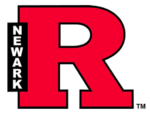
Rutgers, The State University of New Jersey is a public university with campuses in New Brunswick, Newark, and Camden, New Jersey. Rutgers provides a vibrant and challenging academic environment, cutting edge research programs, and a tradition of service to New Jersey and the nation. In addition to its traditional programs of study. The University belongs to the Association of American Universities, which includes just 62 to research universities in North America. U.S. News & World Report ranks Rutgers Newark #72 in “National Universities,” #28 in “Top Public Schools,” and #20 in “Best Nursing Schools.”
The Rutgers School of Nursing mission is to educate students, advance the discipline of nursing through research, scholarship and practice, provide service to meet the health care needs in collaboration with the diverse populations and demonstrate change oriented leadership at the local, state, national and international levels. The Bachelor of Science in Nursing at Rutgers is a four-year program of full-time study. Students complete two years of general education with a focus on how these interdisciplinary fields impact the healthcare field. Students complete a volunteer or internship experience equivalent to 20 hours of clinical experience in their final two years of study. In addition to the traditional Baccalaureate program, Rutgers also offers an RN-to-BSN program for students who already possess their nursing license. Rutgers outstanding reputation for the quality of its undergraduate nursing programs has earned it its place in this ranking.
Accreditation: Rutgers New Brunswick is regionally accredited by the Middle States Association of Colleges and Schools.
Tuition
In-State: $55,316
Out-of-State: $117,920
#14. Pennsylvania State University

Established in 1855, Pennsylvania State University is a state-related research university and is the flagship public university of the Commonwealth of Pennsylvania, with an historic land-grant mission of teaching, research and service. One of 24 Statewide campuses, the campus at University Park is the flagship campus, lying within the Borough of State College and College Township. The university is known for its opportunities for undergraduates to work with world-class faculty conducting significant research that advances and serves the nation in important ways. U.S. News & World Report ranks Penn State University Park #50 in “National Universities,” #14 in “Top Public Schools,” and #20 in “Best Nursing Schools.”
The College of Nursing at Penn State aims to combine exceptional academic programs with a vibrant research enterprise, a strong outreach program, and opportunities to study abroad. The Penn State College of Nursing provides a rich, diverse educational experience to future professional and advanced practice nurses, nursing researchers, and nurse educators. The Bachelor of Science in Nursing at PSU is offered through multiple pathways including traditional, second degree, and RN-to-BSN. The program combines a broad liberal arts and science foundation with an extensive range of nursing courses and prepares students to provide nursing care in a variety of settings, including hospitals, private practice, long-term care, clinics, and health care/community agencies. Internships and research opportunities are available at a variety of health care settings so students can discern what sort of health care setting is right for them and gain valuable experience in that setting before entering the workforce. PSU’s excellent reputation for quality undergraduate nursing programs has earned it its place in this ranking.
Accreditation: Pennsylvania State University is regionally accredited by the Middle States Commission on Higher Education.
Tuition
In-State: $71,600
Out-of-State: $129,528
#15. University of Texas Austin

Considered a “Public Ivy,” the University of Texas—Austin is one of the largest institutions of higher learning in the country and offers over 350 degree programs through 17 colleges and schools, many of which are highly ranked on the national scale. The University of Texas Austin is one of the largest public universities in the nation and is highly ranked by U.S. News & World Report at #52 in “National Universities,” #16 in “Top Public Schools,” and #23 in “Best Nursing Schools.”
The School of Nursing at UTA is among the nation’s leading nursing schools with a history of excellence in academics, teaching, research, and service. UTA’s school of nursing provides students with undergraduate and graduate tracks to becoming nurses as well as a wealth of research and internship opportunities to support their education. The school offers a Bachelor of Science in Nursing program that follows a four-year curriculum exploring nursing theory and practice. The program prepares graduates to work in a wide variety of clinical settings and provides the necessary foundation for masters and doctoral degrees in nursing.UTA’s outstanding reputation for offering quality undergraduate nursing programs has earned it its place in this ranking.
Accreditation: The University of Texas Austin is regionally accredited by the Southern Association of Colleges and Schools.
Tuition
In-State: $43,968
Out-of-State: $158,720
#16. University of Virginia

Founded by Thomas Jefferson, the University of Virginia is a “public-private” research university and member institution of the Association of American Universities. Located in the town of Charlottesville, the university offers attention to undergraduate teaching and strong mentorship opportunities of small liberal arts university with the vast resources of a major research institution. UVA is a nationally and globally renowned institution of higher learning ranked #26 in “National Universities and #3 in “Top Public Schools,” and #19 in “Best Nursing Schools” by U.S. News and World Report.
The School of Nursing — founded in 1901 at the same time as the Medical Center — is part of the UVA Health System along with the School of Medicine, the Claude Moore Health Sciences Library, the UVA Physicians Group, and the Medical Center. The medical school Thomas Jefferson established in 1825 as the nation’s 10th has grown to become a renowned academic health system. The Medical Center is an integrated network of primary and specialty care services ranging from wellness programs to the most technologically advanced care. UVA offers Bachelor of Science in Nursing programs with traditional (four year) and RN-to-BSN pathways. All students take courses in anatomy and physiology, growth and development, pharmacology, pathophysiology, administration, and nursing practice. Students conduct research independently or as part of a team. UVA’s excellent reputation for quality undergraduate nursing education offerings earns it its place in this ranking.
Accreditation: The University of Virginia is regionally accredited by the Southern Association of Colleges and Schools.
Tuition
In-State: $63,512
Out-of-State: $180,888
#17. Molloy College

Molloy College is a private institution of higher learning located in Long Island, New York. Molloy is a small enough private college to offer excellent student support through faculty mentorships while also being large enough to offer students excellent academic resources and experiences. Molloy is known for its Global Learning emphasis which places students in courses that taken them around the world to glean a global perspective on issues and solutions to the problems we face. At the same time, Molloy maintains a strong regional focus and engages students in providing solutions to regional problems as well. Molloy is ranked #163 in “Best Nursing Schools”
Molloy College is home to a variety of Bachelor of Science Programs and its School of Nursing is nationally ranked. Programs feature a hands on curriculum that immerses students in clinical practice with an emphasis on human compassion, dignity and respect for the patient. Molloy’s programs proactively respond to the changing needs of our healthcare environment and our students, providing students with individualized attention from an expert faculty that’s easily accessible and always committed to student success. BSN degrees are offered through traditional pathways as well as a second degree program, RN program, or LPN mobility program.
Accreditation: Molloy College is regionally accredited by the Middle States Association of Colleges and Schools.
Tuition: $117,600
#18. University of Wisconsin Milwaukee

The University of Wisconsin in Milwaukee was founded in 1956 and is a member institution of the UW System. UWM is known for its opportunities for continuing education for adult and non-traditional students. The University also includes Wisconsin’s largest colleges of nursing and health sciences. U.S. News & World Report ranks UWM #67 in “Best Graduate Nursing Programs.”
As Wisconsin’s largest nursing program the College of Nursing at UWM has made its home in Milwaukee, the commercial, cultural and economic capital of Wisconsin, since 1965. The college’s competitive, collaborative nursing program is valued for its ability to prepare science-based, compassionate nurse leaders through innovative, quality educational programs and prepares graduates at every practice level to transform health care delivery and health policy. The College offers Bachelor of Science in Nursing programs both through traditional four year and RN-to-BSN pathways. Nursing programs are designed to prepare students to be science-based, compassionate nurse leaders through innovative and quality curricula for all specialities and settings of practice. The program takes place in two parts: a general education component over the first two years, and a nursing core of lectures, hands-on clinical experiences, and lab exercises over the second two years. UWM’s excellent and tuition rates earn it its place in this ranking.
Accreditation: University of Wisconsin Madison is regionally accredited by the North Central Association of Colleges and Schools.
Tuition
In-State: $37,880
Out-of-State: $79,384
#19. James Madison University
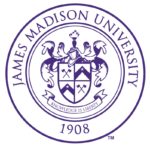
James Madison University is a public institution of higher learning located in Harrisonburg, Virginia. The university offers programs at the bachelor’s, master’s, and doctoral levels with a heavy emphasis on undergraduate education. JMU offers an extensive variety of professional and pre-professional programs as well as a wide variety of learning experiences outside the classroom. James Madison University is ranked #3 in “Most Innovative Schools,” #2 in “Top Public Schools,” and #131 in “Best Nursing Schools,” by U.S. News & World Report.
James Madison University’s School of Nursing is dedicated to engaging students, faculty, and local communities through dynamic and innovative nursing education, practice, and scholarship to influence health in our world. The School’s Bachelor of Science in Nursing is a four year program broken into two parts: the General Education component which comprises the first two years and covers prerequisite courses in the liberal arts and sciences, and nursing program which comprises the second two years and includes nursing core courses and electives blended with practicum activities and lab experiences. The program enjoys a strong positive reputation. JMU graduates perform well on the state licensure exam and have a wide choice of career options. JMU’s good tuition rates have earned it its place in this ranking.
Accreditation: James Madison University is regionally accredited by the Southern Association of Colleges and Schools.
Tuition
In-State: $43,512
Out-of-State: $109,112
#20. University of South Florida
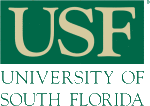
Located in Tampa, the University of South Florida is the flagship campus of the three campus USF System. The school is home to USF Health, which includes the Colleges of Medicine, Nursing, Public Health, and Pharmacy one of the largest providers of health professions education in the state. USF is classified as a top tier research university and is ranked #84 in “Top Public Schools,” and #45 in “Best Nursing Schools” by U.S. News and World Report.
The USF Health College of Nursing lives by its mission of “Transforming Healthcare, Transforming Lives: Creating the Nursing Leaders of Tomorrow and the Research that Improves Health.” Program at the College are helping to shape the nursing profession and create nursing leaders equipped to navigate the constantly changing field of nursing. The Bachelor of Science in Nursing program at USF is open to students at multiple points of entry including a traditional four year, accelerated second degree sequence, RN-to-BSN, and more. The curriculum includes courses in Pathophysiology, Pharmacology, Psychiatric Mental Health, Nursing Practice, Public Health, Care of Women, Children, and Families, and more. USF’s excellent tuition rates have earned it its place in this ranking.
Accreditation: The University of South Florida is regionally accredited by the Southern Association of Colleges and Schools.
Tuition
In-State: $25,640
Out-of-State: $69,296
#21. University of Illinois Chicago
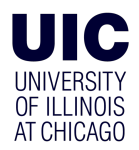
The University of Illinois Chicago is a public research university dedicated to the “creation of knowledge that transforms our views of the world and through sharing and application, transforms the world.” As Chicago’s only public research university, UIC conducts valuable research to address the challenges that face Great Cities in the 21st century. UIC is ranked #152 in “National Universities,” #78 in “Top Public Schools,” and #20 in “Best Nursing Schools” by U.S. News & World Report.
The College of Nursing at UIC is dedicated to its mission of transforming healthcare, and policy through knowledge generation and translation, and education of future leaders from diverse backgrounds. The Bachelor of Science in Nursing program options at UIC include a traditional BSN and an RN-to-BSN. The nursing component of the BSN degree requires two years of full-time study for completion and offer a comprehensive understanding of nursing theory and practice. Curriculum includes internships and research opportunities to round out and apply knowledge gleaned through coursework. UIC’s excellent reputation for quality undergraduate nursing education and above average tuition rates have earned it its place in this ranking.
Accreditation: The University of Illinois Chicago is regionally accredited by the North Central Association of Colleges and Schools.
Tuition
In-State: $76,504
Out-of-State:$127,712
#22. University of Pittsburgh

The University of Pittsburgh is a public university located in Pittsburgh, Pennsylvania. The university is a member of the prestigious Association of American Universities. The university’s Medical Center is well known for pioneering research and medical advancements in areas such as concussion treatment and regenerative medicine for healing injuries, and more. University of Pittsburgh is ranked #68 in “National Universities,” #24 in “Top Public Schools,” and #8 in “Best Nursing Schools.”
The School of Nursing at Pitt is dedicated to advancing nursing practice by preparing nurses to deliver the highest quality care guided by research, intellect, and passion. Pitt’s Bachelor of Science in Nursing programs include the traditional BSN, Accelerated 2nd degree option, and RN-to-BSN. Pitt’s nursing curriculum begins in the first year of study alongside general education coursework in liberal arts and sciences. Undergraduate nursing students also have the opportunity to seamlessly move through the BSN program into a graduate nursing degree program. The University of Pittsburgh has an excellent reputation for the quality of its undergraduate nursing programs which has earned it its place in this ranking.
Accreditation: The University of Pittsburgh is regionally accredited by the Middle States Commission on Higher Education.
Tuition
In-State: $89,080
Out-of-State: $46,568
#23. Arizona State University

Arizona State University is a public research university with campuses across the city of Phoenix, Arizona. The university has the distinction of being ranked No. 1 among the “Most Innovative Schools in America” by U.S. News & World Report. The university is the largest public university in the U.S. by enrollment with over 82,000 students. The school is classified as a research university with very high research activity by the Carnegie Classification of Institutions of Higher Education and is ranked among the top research universities in the U.S. based on research output, innovation, development, research expenditures, number of awarded patents and awarded research grant proposals. U.S. News & World Report ranks ASU #129 in “National Universities,” #61 in “Top Public Schools,” and #31 in “Best Nursing Schools.”
ASU’s College of Nursing & Health Innovation is distinguished as a model for excellence and inspiration in nursing and interprofessional practice, education, and research to advance knowledge and innovative practice models, and new solutions to optimize the health and well-being of diverse local, national and global communities. The College aims to deliver excellent, innovative, nationally-recognized nursing and interprofessional programs that are accessible, inclusive, and learner-centered. The Bachelor of Science in Nursing offered through the college provides students rigorous preparation to provide high-quality professional nursing care. Students engage in learning through a curriculum based upon evidence-based practice, clinical reasoning, innovation, interprofessional communication, and information technology. The BSN is offered through four different pathways: traditional four year, accelerated track, second degree, and RN-to-BSN (online) programs. The upper-division nursing program (required in all tracks) may be completed in a 16-month year-round schedule or a 24-month academic year schedule. ASU has a very good reputation for offering quality undergraduate nursing education at relatively low tuition rates.
Accreditation: Arizona State University is regionally accredited by the Higher Learning Commission.
Tuition
In-State: $42,560
Out-of-State: $105,880
#24. University of North Carolina Chapel Hill

Established in 1789, the University of North Carolina in Chapel Hill is known as being the nation’s first public university and is renowned as one of the best universities in the world. UNC Chapel Hill is recognized as one of the “Public Ivies”—a public university offering a quality of education commensurate with that of the private Ivy Leagues. UNC is currently ranked #27 in “Best Global Universities,” #30 in “National Universities,” #5 in “Top Public Schools,” and #17 in “Best Nursing Schools” by U.S. News and World Report.
The School of Nursing at UNC-Chapel Hill is nationally recognized as one of the premiere nursing schools in the country, with a tri-fold mission of excellence in nursing education, research and practice. The School offers a variety of Bachelor of Science in Nursing programs to prospective students, including a bachelor of nursing degree as well as accelerated programs. The upper-division nursing curriculum which is common to all BSN tracks focuses on theory and practice of nursing in a variety of healthcare settings. The program is designed to equip students with the knowledge and skills for competence in all areas of professional nursing.
Accreditation: The University of North Carolina Chapel Hill is regionally accredited by the Southern Association of Colleges and Schools.
Tuition
In-State: $33,176
Out-of-State: $135,664
#25. Washington State University

Located in Pullman Washington, Washington State University is a public research university focusing on areas of health, sustainability, social opportunity and equity, smart systems, and national security. The university boasts top ranked programs in chemical engineering and bioengineering, crop and soil sciences, health policy, zoology, and veterinary sciences, and many more. The university also offers nationally recognized online learning programs to students worldwide. U.S. News & World Report is ranked #143 in “National Universities,” #71 in “Top Public Schools,” and #41 in “Best Nursing Schools.”
The College of Nursing at WSU is known for delivering excellent academic programs as well as engaging in research and service in partnership with educational institutions and community stakeholders. The pre-licensure Bachelor of Science in Nursing degree program prepares students for a lifelong career in nursing practice. The BSN program prepares students with a blend of course work, skills practice, simulation, and clinical experience. Students learn foundational skills and theories in class. Critical thinking and nursing skills are developed in the practice lab working with preceptors in a safe, controlled environment. Simulation – either using high fidelity manikins or staged with real people – allows students to apply the skills and nursing theories while working on communication, teamwork, and making sound clinical decisions. In addition to countless hours in the practice and simulation lab, students will log more than 950 hours in clinical settings outside the college preparing you for successful nursing practice.
Accreditation: WSU is regionally accredited by the Northwest Commission on Colleges and Universities.
Tuition
In-State: $39,536
Out-of-State: $148,504
#26. University of Connecticut

The University of Connecticut is a public university widely considered one of the nation’s leading research institutions and serves as a hub of academic and research excellence, innovation, and social service to communities. UConn is located in the town of Storrs and has an excellent reputation for high quality educational programs. U.S. News and World Report ranks UConn # 57 in “National Universities,” #19 in “Top Public Schools,” and #43 in “Best Nursing Schools.”
UConn’s School of Nursing is committed to wellness and works to provide the exceptional education needed to succeed in the rapidly evolving professional world of nursing. The School offers a Bachelor of Science in Nursing designed to prepare graduates through a strong background in the humanities and sciences. Students spend their first four semesters acquiring these building blocks of knowledge. Students individually plan their course of study in cooperation with a faculty advisor within the first two semesters of coursework. Most of the nursing courses are concentrated in the second half of the program. College laboratories facilitate the transfer of knowledge from theory to actual practice. The school has relationships with 60 plus different health care related agencies with which students undertake clinical experiences in their last four semesters. UConn’s good reputation and above average tuition rates have earned it its place in this ranking.
Accreditation: The University of Connecticut is regionally accredited by the New England Association of Schools and Colleges.
Tuition
In-State: $57,120
Out-of-State: $145,152
#27. George Mason University

Located in Fairfax, Virginia, George Mason University is a public research university founded as a branch of the University of Virginia. GMU is recognized for its programs in economics, law, creative writing, computer science, and business. Mason prides itself on being among the most innovative universities in the world with many degree programs that are the first of their kind. Mason strives to be a university for the world as it continues to explore instructional, research, and outreach opportunities for innovative global initiatives that enhance the education of its students and increase collaborations among faculty and programs throughout the globe. U.S. News & World Report recognizes George Mason as #143 in “National Universities,” #71 in “Top Public Schools,” and #73 in “Best Nursing Schools.”
The School of Nursing at GMU’s College of Health and Human Services provides an innovative, caring, and collaborative learning environment. Graduates of the School demonstrate integrity and are prepared for interdisciplinary roles as clinicians, educators, researchers, and administrators. The Bachelor of Science in Nursing program prepares students to deliver superior nursing care and provide leadership in nursing in the increasingly complex and challenging field of modern health care. Graduates are in demand as professional nurses in hospitals, long-term care facilities, and community health and other health care agencies. The program emphasizes health promotion and disease prevention, capitalizing on early detection of potential health problems, health maintenance in ambulatory services, and preparation for the managerial responsibilities of nursing. The program is available through a variety of completion pathways including the traditional (four year), RN-to-BSN, accelerated second degree, and Co-enrollment pathway (which allows students to complete a BSN online while concurrently enrolled in an Applied Associates of Science in nursing degree at a partner community college). George Mason’s well rounded, above average scores in all value categories have earned it its place in this ranking.
Accreditation: George Mason University is regionally accredited by the Southern Association of Colleges and Schools.
Tuition
In-State: $45,200
Out-of-State: $130,328
#28. University of Michigan Ann Arbor
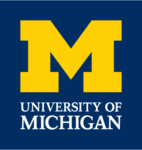
The University of Michigan at Ann Arbor is a public research university ranked among the top universities in the United States. UM Ann Arbor is dedicated to serving the people of Michigan and the world through the creation, communication, preservation, and application of knowledge, art, and academic values, and in developing leaders and citizens who challenge the present and enrich the future. U.S. News and World Report ranks the University of Michigan #29 in “National Universities,” #4 in “Top Public Schools,” and #11 in “Best Nursing Schools.”
The School of Nursing at University of Michigan Ann Arbor is committed to creating a rich scholarly community that supports the advancement of both nursing as a field and the community’s individual members. The Bachelor of Science in Nursing program balances nursing courses with humanities as well as social and biological sciences. With an Honors program for high-achieving students, a low student-faculty ratio, an expansive medical library system, the School of Nursing provides an ideal environment for success. Students will have the distinct privilege of access to internship and fellowship opportunities through the University of Michigan Health System which is one of the largest health science centers in the nation. The traditional BSN program is designed for those seeking a traditional, four year undergraduate experience and prepares graduates to enter the field of nursing through a fusion of theoretical classroom study and ample hands-on clinical experience. Students have the option to minor in Population Health in a Global Context. University of Michigan Ann Arbor’s outstanding reputation for providing excellent undergraduate nursing education earns it its place in this ranking.
Accreditation: The University of Michigan is regionally accredited by the North Central Association of Colleges and Schools.
Tuition
In-State: $28,148
Out-of-State: $90,164
#29. Duke University

Duke University is a private institution located in Durham, North Carolina and is considered among the top research universities in the nation. Duke is known for its qualities of innovation, entrepreneurship, energy, and ambition and students at Duke are afforded a wide range of opportunities and encouraged to experiment with ideas and organizations and challenged to become engaged with society’s problems and solutions. Duke is ranked by U.S. News & World Report #8 in “National Universities,” #12 in “Most Innovative Schools,” and #1 in “Best Nursing Schools.”
Duke University School of Nursing is dedicated to creating a center of excellence for the advancement of nursing science, the promotion of clinical scholarship and the education of clinical leaders, advanced practitioners and researchers. Through nursing research, education and practice, students and faculty seek to enhance the quality of life for people of all cultures, economic levels and geographic locations. Duke offers its Bachelor of Science in Nursing as an accelerated degree program only. Students must already possess a bachelor’s degree in a different discipline than nursing to be admitted to the program. The program lasts four 12 week semesters or 16 months. Duke is nationally recognized as a leader in nursing education and as such their cutting edge curriculum is rigorous and demanding. Students will be immersed in clinical experiences in multiple sites at the Duke University Health System and in other well-respected settings across the Triangle region. While Duke’s tuition is on the steep side, its outstanding scores in other value categories earn it its place in this ranking.
Accreditation: Duke University is regionally accredited by the Southern Association of Colleges and Schools.
Tuition: $214,976
#30. University of Cincinnati

Founded in 1819 the University of Cincinnati is a public research university and part of the University System of Ohio. Enrolling over 43,600 students, UC is the second largest university in the state of Ohio. The University of Cincinnati offers a wide range of online degree options at the associate’s, bachelor’s, and mater’s levels including programs in education, criminal justice, human services, information technology, health sciences, engineering, nursing, and more. U.S. News & World Report ranks the University of Cincinnati #135 in “National Universities,” #71 in “Best Mechanical Engineering Programs,” and #38 in “Best Nursing Schools.”
The University of Cincinnati’s College of Nursing aims to lead the transformation of health care in partnership informed by the people it serves and through the creative leveraging of technology and inclusive excellence. The College offers a variety of Bachelor of Science in Nursing programs, including an accelerated option. The traditional BSN requires four years of full-time study. From the beginning of the degree coursework, students take nursing coursework next to their general ed requirements in the liberal arts and sciences. Students must complete two nursing clinical and will throughout the duration of the program be expected to utilize knowledge from the classroom in their clinical settings. University of Cincinnati’s excellent reputation and above average tuition rates have earned it its place in this ranking.
Accreditation: The University of Cincinnati is regionally accredited by the North Central Association of Colleges and Schools.
Tuition
In-State: $44,000
Out-of-State: $105,336
#31. University of Utah
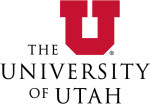
Located in Salt Lake City, the University of Utah is the state’s flagship university. U of U is a research intensive university that emphasizes community engagement. The mission of the University of Utah is to serve the people of Utah and the world through discovery, creation, and application of knowledge.The U provides challenging instruction for its students through interdisciplinary work and the integration of instruction with research opportunities. It is a highly ranked and reputable institution of higher learned ranked by U.S. News and World Report at #55 in “Top Public Schools,” and #31 in “Best Nursing Schools.”
The University of Utah’s College of Nursing is considered one of the nation’s top nursing schools and is dedicated to the advancement of health through excellence in nursing and interdisciplinary teaching, research, practice, and service. The College offers a Bachelor of Science in Nursing designed to expand knowledge of science and humanities by integrating and applying scientific findings from a broad range of disciplines to nursing practice. The program is offered through three tracks: Pre-Licensure, Post-Licensure, and Nursing Early Assurance (for high school seniors and college freshman with fewer than 30 credit hours). Students will enjoy access to internship and clinical experiences from partner medical institutions located nearby. University of Utah’s excellent reputation for quality undergraduate nursing education earns it its place in this ranking.
Accreditation: The University of Utah is regionally accredited by the Northwest Commission on Colleges and Universities
Tuition
In-State: $35,296
Out-of-State: $112,272
#32. University of Massachusetts Amherst

The University of Massachusetts Amherst is the largest public university in New England and is a highly reputable institution on the national scale. The university is affiliated with the “Five College Interchange” which allows students enrolled through the university to also take courses at smaller liberal arts schools in the region. UMass offers its students a wide array of academic disciplines and nationally-known programs of study, including the Bachelor’s Degree with Individual Concentration, which allows students to create their own major. U.S. News & World Report ranks UMass #75 in “National Universities,” #29 in “Top Public Schools,” and #45 in “Best Nursing Schools.”
The College of Nursing at UMass is dedicated to providing an affordable and accessible education to enhance health and healing through nursing leadership in teaching scholarship, practice and service. UMass’s Bachelor of Science in Nursing is offered as a traditional major, an accelerated degree program open to students who already possess a bachelor’s degree in another discipline, and an RN-to-BSN track. The BSN at Mass is designed to prepare students to achieve success in nursing careers, assume leadership roles in the field, and pursue graduate level study in nursing. Students will take 2 years of general education and nursing prerequisites before entering into upper division nursing coursework. Nursing courses include topics such as: Pathophysiology/Pharmacology, Maternal-Newborn Nursing, Psychiatric-Mental Health Nursing, Care of Adults, Community Health Nursing, and more. UMass has above average scores in almost every value category earning it its place in this ranking.
Accreditation: The University of Massachusetts Amherst is regionally accredited by the New England Association of Schools and Colleges.
Tuition
In-State: $59,880
Out-of-State: $101,072
#33. Duquesne University

Located in Pittsburgh, Pennsylvania, Duquesne University is a private Catholic school offering undergraduate and graduate degree programs in engineering, business, nursing, health sciences, pharmacy, law, education, the liberal arts, and more. Duquesne is committed to the values of educational excellence; moral and spiritual development; ecumenicism; and service to the church, community, nation, and world. U.S. News & World Report ranks Duquesne #124 in “National Universities,” and #67 in “Best Nursing Schools.”
The Duquesne School of Nursing’s Bachelor of Science in Nursing program is available to qualified high school graduates and transfer students. The basic program includes four years of study and is designed to provide students with the knowledge and skills needed to practice as professional nurse generalists upon graduation. The general and professional education acquired in this program provides a basis for the graduate to progress to positions of increasing responsibility and to undertake graduate study. The BSN curriculum gives students a strong foundation in the liberal arts and sciences. Courses in the natural, biological and behavioral sciences, as well as the University core courses, support the philosophy that provides the basis for the organizing framework of the professional nursing program. Professional nursing courses, which constitute the major, include theory and practice in the nursing care of individuals, families and aggregates.
Accreditation: Duquesne University is regionally accredited by the Middle States Commission on Higher Education.
Tuition: $135,152
#34. Florida State University

Florida State University is a space-grant, land-grant and public research university located in capital city of Tallahassee. FFSU enrolls over 41,700 students The university has is considered a “Budget Ivy”—an institution of higher learning offering a quality of education at the level of the Ivy Leagues at a fraction of the cost. The FSU experience combines the intimate and personal feel of a smaller college with the academic power of a large, preeminent research university having the highest doctoral research classification. FSU is a reputable institution scoring high on rankings by U.S. News & World Report, including #92 in “National Universities,” #38 in “Top Public Schools,” and #103 in “Best Nursing Schools.”
The College of Nursing at FSU is dedicated to the education of clinicians, leaders, scholars, and advanced practitioners who will transform nursing through collaborative care and multi-faceted health care settings, while enhancing the quality of life for people of all cultures, economic levels and geographic locations. The Bachelor of Science in Nursing program is offered at FSU through traditional and accelerated formats. The program is based on concepts and principles from liberal studies, biological and behavioral sciences, and nursing theory. Additionally the program is designed to impart evidence-based nursing care practices to students in preparation for nursing careers in a variety of health care settings. The BSN program is a 2-year full-time course of study which may begin once students have completed a minimum of 52 credits of general education, and nursing prerequisites. Clinical experiences are undertaken in the College’s simulation center and throughout regional health care agencies. FSU’s very good tuition rates and above average reputation have earned it its place in this ranking.
Accreditation: Florida State University is regionally accredited by the Southern Association of Colleges and Schools.
Tuition
In-State: $25,866
Out-of-State: $86,532
#35. Texas A&M University Corpus Christi

An independent member of the Texas A&M University System which is one of the largest university systems in the country, The Texas A&M University Health Science Center (TAMHSC) is transforming health through innovative research, education and service in dentistry, medicine, nursing, pharmacy, public health and medical sciences. Texas A&M is recognized by U.S. News & World Report” as #74 in top “National Universities,” #27 in “Top Public Schools,” and #203 in “Best Nursing Schools.”
The College of Nursing at TAMHSC is committed to addressing the critical nursing shortage across Texas, and strives to produce the most prepared nurses and the most advanced nursing research. Through community service and leadership opportunities, the College of Nursing fosters a sense of social responsibility and global citizenship. TAMU Corpus Christi offers the Bachelor of Science in Nursing through traditional, accelerated, and RN-to-BSN pathways. The Upper-Division curriculum comprises 58 credits of coursework and clinical experiences. Courses include topics such as Nurse as Therapeutic Communicator, Health Assessment, Care of Children and Families, Nurse as Research Consumer, Care of Adults, Coordinating Care, and more. TAMU Corpus Christi’s very good tuition rates and above average scores in other value categories have earned it its place in this ranking.
Accreditation: Texas A&M University is regionally accredited by the Southern Association of Colleges and Schools.
Tuition
In-State: $30,288
Out-of-State: $73,032
#36. University of Wisconsin Eau Claire
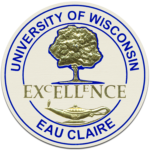
The University of Wisconsin in Eau Claire is a public university that carries out its mission to prepare students to succeed in a connected world influenced by global economic and social forces through a focus on “high impact” experiential learning programs. UW-Eau Claire is one of just a few public universities in the country to include service-learning as a graduation requirement. U.S. News & World Report ranks UW Eau Claire #37 in “Regional Universities Midwest,” #5 in “Top Public Schools,” and #115 in “Best Nursing Schools.”
The College of Nursing and health Sciences at UW Eau Claire engages students in collaborative learning in and out of the classroom, conduct research with faculty, and get hands-on experience through clinicals and practica. The College has a strong reputation of responding to community/state needs and is regularly involved in new initiatives, enhancing community connections, promoting a diverse faculty and student body, and maintaining sustainability. The Bachelor of Science in Nursing program is based around a curriculum that interweaves a variety of disciplines such as the natural and social sciences, humanities, and nursing specific science courses. Students are prepared through clinicals, lab simulations, and cultural immersion experiences to take on any situation in their nursing careers beyond UW’s classrooms. UW’s excellent tuition rates have earned it its place in this ranking
Accreditation: University of Wisconsin Madison is regionally accredited by the North Central Association of Colleges and Schools.
Tuition:
In-State: $35,600
Out-of-State: $67,200
#37. University of Arizona

Located in Tucson, the University of Arizona is a public research university and the state’s super land-grant university with two medical schools, produces graduates who are real-world ready through its 100% Engagement initiative. Recognized as a global leader, the UA is also a leader in research, bringing more than $606 million in research investment each year, and ranking 21st among all public universities. The UA is advancing the frontiers of interdisciplinary scholarship and entrepreneurial partnerships and is a member of the prestigious Association of American Universities. U.S. News & World Report ranks the University of Arizona #124 in “National Universities,” #60 in “Top Public Schools,’ and #41 in “Best Nursing Schools.”
The College of Nursing at the University of Arizona is dedicated to excellence in nursing and health-care education, research, and practice and is ranked among the top 10% of nursing schools nation wide. The Bachelor of Science in Nursing program are among the nation’s most competitive. To be admitted to the BSN program, students typically have earned above a 3.4 GPA in their prior studies. The Upper division portion of the program consists of two years worth of nursing coursework and clinical practicums. Students will study topics such as Pathophysiology, Nursing Pharmacology, Acute and Chronic Illness Management, Mental Health Nursing, Population Health and Community Nursing, and more. The curriculum is designed to both prepare students to enter careers in a wide variety of nursing settings or go on to graduate level nursing education. U of A’s outstanding reputation for quality undergraduate nursing education has earned it its place in this ranking.
Accreditation: The University of Arizona is regionally accredited by the North Central Association of Colleges and Schools.
Tuition
In-State: $58,120
Out-of-State: $120,040
#38. Indiana University
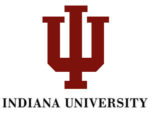
Indiana University is a multi-campus university system with its flagship campus located in Bloomington, Indiana. Established in 1820, IU Bloomington is the largest institution in the IU system with over 40,000 students. The university is a member of the prestigious Association of American Universities and is considered a “Public Ivy”— a public institution of higher learning offering a quality of education commensurate with that of the Ivy Leagues. U.S. News & World Report ranks IU #86 in “National Universities,” and #36 in “Top Public Schools.”
Indiana University in Bloomington School of Nursing has been shaping the nursing profession through education and research. The school is committed to preparing skilled nursing professionals and to engaging in research that advances nursing education and practice. Students in the Bachelor of Science in Nursing program will undertake a mix of liberal arts education and health care courses. The program is traditional four year degree with one year of general education requirements before entering into nursing coursework. The school also offers an RN-to-BSN option taken completely online and requiring less than two years of full-time study to complete.
Accreditation: Indiana University is regionally accredited by the North Central Association of Colleges and Schools.
Tuition
In-State: $41,552
Out-of-State: $36,984
#39. University of Kansas
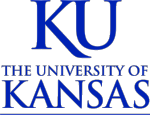
Located in Lawrence, the University of Kansas was founded in 1863 and is a public research university and the largest in the state of Kansas with an enrollment of over 28,000 students. The university is a member of the prestigious Association of American Universities. The university offers more than 345 degree programs and includes highly regarded programs in city management and urban policy as well as in special education. U.S. News & World Report ranks KU #118 in “National Universities,” #56 in “Top Public Schools,” and #67 in “Best Nursing Schools.”
The University of Kansas School of Nursing, with nationally ranked academic programs, prepares hundreds of students each year for successful nursing careers, as clinical nurses, advanced practice nurses, educators, leaders, administrators, scholars and researchers. The School provides a resource-filled and student-centered environment for every level of a nurse’s career, offering bachelor’s, master’s and doctoral degrees, as well as continuing education programs, accelerated curriculum, online classes and an RN-to-BSN option for registered nurses interested in pursuing advanced degrees. The Bachelor of Science in Nursing program prepares students for success in a changing health care environment. Students are prepared for generalist practice with extensive clinical and laboratory experiences that form the basis of their broad understanding of professional nursing. The program utilizes a concept-based curriculum that emphasizes the application of knowledge across a variety of settings where nurses work and with myriad of age groups for whom they care for many years to come. University of Kansas’ good scores in tuition and reputation have earned it its place in this ranking.
Accreditation: The University of Kansas is regionally accredited by the North Central Association of Colleges and Schools.
Tuition
In-State: $43,200
Out-of-State: $107,200
#40. University of North Carolina Charlotte

The University of North Carolina Charlotte is a public doctoral research university that is ranked #38 top college in the United States by the Social Mobility Index. The School maintains a strong emphasis on preparation of students for engaged citizenship. UNC Charlotte is ranked #103 by U.S. News and World Report in “Best Nursing Schools,” #202 in “National Universities,” and #110 in “Top Public Schools.”
The UNC Charlotte School of Nursing prepares nursing professionals to serve as leaders, clinicians and scholars through a wide range of innovative educational programs to meet the healthcare needs of an ever changing culturally diverse society. The pre-licensure Bachelor of Science in Nursing degree program prepares graduates for generalist practice in nursing by providing a strong liberal arts and science foundation, and an extensive range of nursing courses. Graduates are prepared to work in a variety of settings, caring for clients across the lifespan, and may assume leadership and management roles. The program is a traditional 4 year program of study in which students apply to the upper-division of the program upon completion of nursing prerequisite courses. The School also offers an RN-to-BSN program designed to be completed over the course of 1 calendar year. UNC Charlotte’s excellent tuition rates have earned it its place in this ranking.
Accreditation: The University of North Carolina Charlotte is regionally accredited by the Southern Association of Colleges and Schools.
Tuition
In-State: $28,092
Out-of-State: $81,828
#41. University of Alabama Birmingham

University of Alabama is a public university located in Tuscaloosa, Alabama and is the flagship campus of the University of Alabama System. UA was one of the first universities in the nation to offer an engineering degree and has recently expanded its science and engineering programs, in terms of numbers of students, faculty hired, and number and size of new academic/research facilities. UA is ranked by U.S. News & World Report #159 in “National Universities,” #83 in “Top Public Schools,” and #48 in “Best Nursing Schools.”
The Capstone College of Nursing at UA prepares graduates for the professional practice of nursing. The college is a national innovator in clinical simulation in nursing education, utilizing simulators and telehealth technology in teaching, research and health care delivery. The Bachelor of Science in Nursing program is built on foundational education that includes both academic and professional nursing courses that provide a base for clinical competence and informed judgements about health and patient care in a variety of settings. The program includes traditional and accelerated second degree options for completion. The program also includes the special initiatives of an early entry option for high school students who have earned more than 15 credits through advanced placement studies and a Dean’s Nursing Scholars Program, both of which guarantee admittance into the BSN program with options for early graduation. UAB’s outstanding reputation for undergraduate nursing education and its above average tuition scores earn it its place in this ranking.
Accreditation: The University of Alabama is regionally accredited by the Southern Association of Colleges and Schools.
Tuition
In-State: $32,160
Out-of-State: $39,744
#42. Case Western Reserve University
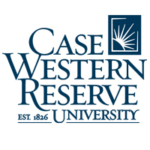
Located in Cleveland, Ohio, Case Western Reserve University is a private research university with many top-rated programs. Case Western in its current form was the result of a merger between the Case Institute of Technology, a school of science and engineering, and Western Reserve University, a university with strong liberal arts and professional programs. U.S. News & World Report ranks Case Western Reserve 337 in “National Universities,” #43 in “Best Value Schools,” and #11 in “Best Nursing Schools.”
The Frances Payne Bolton School of Nursing Case Western Reserve University is a globally recognized leader in nursing education and research. The school offers a Bachelor of Science in Nursing degree program that is among the best in the nation with rigorous preparation. Students are admitted directly into the program in their freshmen year and begin taking nursing courses in the first semester. Clinical placement begins in the first month of the first year of the program and students eventually will earn over 1,300 clinical hours which is more than double that of many other leading programs. The program culminates with a 10-week Senior Capstone project in which students analyze and apply concepts in health and health care, health policy and finance, culture, epidemiology, interventions, ethics, and more. Students have their pick of Capstone sites in the Cleveland area, but may also choose sites across the country. Case Western’s outstanding reputation for offering high quality undergraduate nursing education has earned it its place in this ranking.
Accreditation: Case Western Reserve University is regionally accredited by the North Central Association of Colleges and Schools.
Tuition: $188,296
#43. University of Missouri Kansas City

The University of Missouri at Kansas City is a public research university nationally recognized for the quality of its educational programs. Placing special emphasis on graduate and professional study, including an innovative Interdisciplinary Ph.D. program, UMKC prepares scholars for the challenges of the 21st century. U.S. News & World Report ranks UMKC #210 in “National Universities,” #118 in “Top Public Schools,” and #43 in “Best Nursing Schools.”
The School of Nursing and Health Studies is dedicated to leading in the life and health sciences, and to prepare the nursing and other health professional workforce as leaders in improving health outcomes through interprofessional practice, research, and education. The Bachelor of Science in Nursing at UMKC is a versatile degree that allows graduates the option of working beyond the traditional hospital environment. The program offers specializations to fit the needs of all students’ unique interests and aspirations. Curriculum combines urban-focused coursework in health policy, health program development, health and welness and population health outcomes. The program may be completed through traditional, accelerated, or RN-to-BSN tracks. The school’s outstanding reputation for high quality undergraduate nursing education and its above average tuition scores earn it its place in this ranking.
Accreditation: The University of Missouri Kansas City is regionally accredited by the North Central Association of Colleges and Schools.
Tuition
In-State: $31,600
Out-of-State: $74,008
#44. University of Colorado Anschutz Medical Campus
![]()
Located in the Denver metro area near the Rocky Mountains, CU Anschutz integrates world-class education, research and patient care on one of the nation’s newest health sciences campuses. The campus combines interdisciplinary teaching, research and clinical facilities to prepare the region’s future health care professionals, provide the best available health care at two nationally recognized hospitals and be a national leader in life sciences research. U.S. News & World Report ranks CU Anschutz #26 in “Best Nursing Schools.”
Founded in 1898, the College of Nursing established the first nurse practitioner and school nurse programs in the United States. The College of Nursing prepares leaders in clinical nursing, research and community service; integrates the delivery of exemplary healthcare; discovers and translates new knowledge to improve health in Colorado and beyond. The College offers a variety of Bachelor of Science in Nursing programs including traditional, accelerated second degree, and RN-to-BSN tracks. The BSN programs prepare students with academic and professional coursework for generalist practice in nursing. Graduates will be prepared to be good stewards of the profession, managing patient care in a variety of healthcare contexts through the advocacy of compassionate, evidence-based, relationship-centered, inter professional team-based care to enhance and sustain health and healing. Students will be encouraged to take courses in healthcare management and public health policy to round out their degree so that they are better suited to pursue graduate-level studies. University of Colorado’s outstanding reputation in undergraduate nursing education earns it its place in this ranking.
Accreditation: CU Anschutz is regionally accredited by the North Central Association of Colleges and Schools.
Tuition
In-State: $58,200
Out-of-State: $106,800
#45. Villanova University

Villanova University is a private university located in Radnor, Pennsylvania. The school was named after the Augustinian Saint, Thomas of Villanova and to this day remains affiliated with the Augustinian Order. The university offers a wide variety of degree programs through its four colleges. Villanova University is ranked #50 in “National Universities,” and #59 in “Best Nursing Schools” by U.S. News & World Report.
The College of Nursing at Villanova is a tangible expression of the University’s mission, tradition, and commitment to human service. As a major school of nursing under Catholic auspices, it carries responsibility for the education of nurses within the framework of Christian beliefs and values and the heritage of the Order of St. Augustine. The academic programs in the College of Nursing are directed to interpretation of nursing as a healing ministry emanated by love and demonstrated through service and the care of others. The Bachelor of Science in Nursing program is a highly regarded undergraduate nursing program that is extremely competitive. The program may be completed through traditional, second degree, or RN-to-BSN options. The BSN curriculum is built on a liberal arts foundation and professional nursing courses. Graduates are prepared to integrate an extensive core of nursing knowledge into professional practice. Using evidence-based knowledge, which includes genetics, pharmacology, pathophysiology, and nutrition, graduates make informed clinical decisions to assure quality patient outcomes. While Villanova’s tuition rates are on the expensive side, its outstanding reputation and high scores in other value categories earn it its place here.
Accreditation: Villanova University is regionally accredited by the Middle States Association of Colleges and Schools.
Tuition: $202,216
#46. Florida Atlantic University

Located in the town of Boca Raton, Florida Atlantic University is a public university with special distinction and research emphases in ocean engineering, biomedical research, nursing, accounting, entrepreneurship, arts and humanities, complex systems and brain sciences, honors education, Judaic and Holocaust studies, stochastics, and computer science and engineering. FAU is ranked #45 in “Best Nursing Schools” by U.S. News & World Report.
FLU’s Christine E. Lynn College of Nursing is known for dedication to caring in nursing: expanding the science, studying its meaning, practicing the art and living it day-to-day. The Bachelor of Science in Nursing program is limited access and highly competitive. The program is very rigorous and demands a high level of commitment on the part of the student. Clinical experiences occur in a wide variety of hospital and community settings serving diverse populations. For the pre-licensure students, there are 840 total program hours of clinical and laboratory experience. BSN graduates are prepared as general clinical practitioners and scholars in caring science. The program may be completed through traditional, accelerated, or RN-to-BSN formats. FLU features very good tuition rates which alongside its above average reputation has earned it its place in this ranking.
Accreditation: Florida Atlantic University is regionally accredited by the Southern Association of Colleges and Schools.
Tuition
In-State: $21,728
Out-of-State: $77,728
#47. University of Alabama
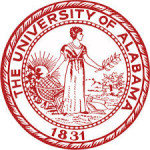
University of Alabama is a public university located in Tuscaloosa, Alabama and is the flagship campus of the University of Alabama System. UA was one of the first universities in the nation to offer an engineering degree and has recently expanded its science and engineering programs, in terms of numbers of students, faculty hired, and number and size of new academic/research facilities. UA is ranked by U.S. News & World Report #159 in “National Universities,” #83 in “Top Public Schools,” and #48 in “Best Nursing Schools.”
The Capstone College of Nursing at UA prepares graduates for the professional practice of nursing. The college is a national innovator in clinical simulation in nursing education, utilizing simulators and telehealth technology in teaching, research and health care delivery. The College offers a traditional four year degree program leading to the Bachelor of Science in Nursing. The program is designed to cultivate an interest in students for being public servants and explores a wide variety of areas of nursing practice including community health, mental health, adult health, pediatrics, labor and delivery, and others. U of A’s good tuition rate has earned it its place in this ranking.
Accreditation: The University of Alabama is regionally accredited by the Southern Association of Colleges and Schools.
Tuition
In-State: $45,080
Out-of-State: $111,000
#48. University of Tennessee Knoxville

The University of Tennessee in Knoxville is a public sun and land grant university and is the flagship campus of the University of Tennessee System. Founded in 1794, UTK is one of the oldest public universities in the United States. UT has come to be known as a green university with its student initiated green fee which enables the university as one of the largest purchasers of green energy in the Southeast. The university is highly reputable ranked #103 in “National Universities,” #46 in “Top Public Schools,” #75 in “Best Civil Engineering Programs,” and #48 in “Best Nursing Schools” by U.S. News & World Report.
UTK’s College of Nursing is a catalyst for optimizing health through nurse led care by integrating education, practice, research, and technology. The College is highly raked nationally and internationally for its comprehensive educational programs, innovative simulation, interprofessional collaboration, research, and community outreach. The Bachelor of Science in Nursing is offered through traditional, accelerated, and RN-to-BSN options. The program combines resources of the UT campus with health care agencies in a manner that enables both faculty and students to participate fully in all facets of the health care delivery system. The curriculum is built on the philosophy that nursing is a caring practice profession, an art, and a scientific discipline. Curriculum integrates the themes of holism, diversity, and caring and emphasizes critical thinking, communication and leadership, and management principles and skills. UTK’s good tuition rates and above average reputation have earned it its place in this ranking.
Accreditation: The University of Tennessee Knoxville is regionally accredited by the Southern Association of Colleges and Schools.
Tuition
In-State: $50,896
Out-of-State: $124,576
#49. University of Texas Health Science Center San Antonio
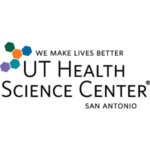
An independent member of the University of Texas System, The UT Health Science Center in San Antonio the center serves patients in San Antonio and South Texas. The University’s health care professionals serve in more than 100 affiliated hospitals, clinics and health care facilities across San Antonio, Laredo and the Rio Grande Valley. More than 3,000 students, researchers and post-doctoral students from around the world come to the UT Health Science Center San Antonio to study, research and discover new breakthroughs. U.S. News & World Report ranks UTHSC #92 in “Best Nursing Schools.”
The School of Nursing at UT Health San Antonio, is at the forefront of nursing education leading excellence in nursing leadership through our innovative teaching, quality research, compassionate care and community service the South Texas community and the world. UT Health offers both an accelerated track and traditional track Bachelor of Science in Nursing The program is an upper division course in which students are admitted upon successful completion of general education and nursing prerequisite requirements. Students take coursework in Health Assessment, Pathophysiology, Pharmacotherapeutics, Psychiatric and Mental Health Nursing, Population Focused Health, Leadership and Management, and more. The school’s very good tuition rate has earned it its place in this ranking.
Accreditation: UT Health San Antonio is regionally accredited by the Southern Association of Colleges and Schools
Tuition
In-State: $21,480
Out-of-State: $93,120
#50. Texas A&M Health Science Center

Located in Bryan Texas, Texas A&M Health Science Center is an independent health sciences university in the Texas A&M University System. The school is the most comprehensive health science center in Texas and is dedicated to addressing today’s health care needs through forward-thinking medical research, service and health professions education. TAMHSC is ranked #203 in “Best Nursing Schools” by U.S. News & World Report.
The College of Nursing is committed to addressing the critical nursing shortage across Texas, and strives to produce the most prepared nurses and the most advanced nursing research. Bachelor of Science in Nursing degrees are offered through Traditional, Accelerated Second Degree, and RN-to-BSN pathways. The curriculum includes prerequisite courses in the humanities and biological, physical and behavioral sciences to provide a foundation for growth in the nursing major. The prerequisite courses may be completed at any accredited college or university. Students will then apply for upper-level entry into the Traditional BSN program to complete the third and fourth years in clinical and non-clinical nursing courses.
Accreditation: TAMHSC is regionally accredited by the Southern Association of Colleges and Schools
Tuition
In-State: $65,616
Out-of-State: $118,016